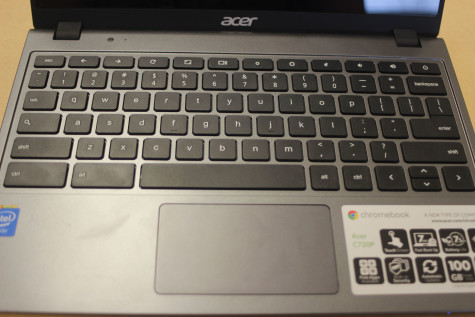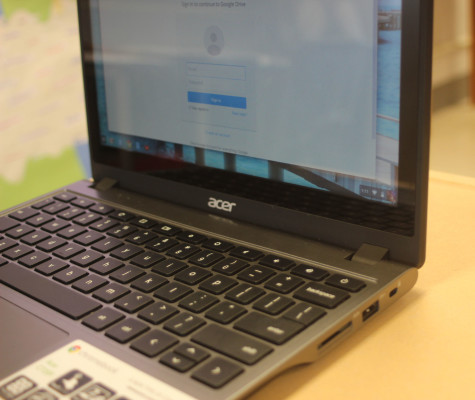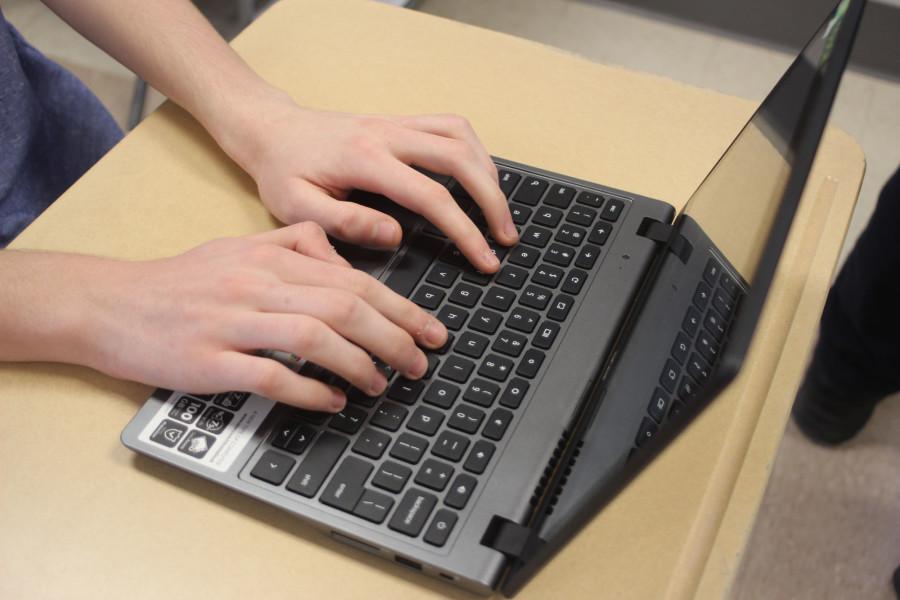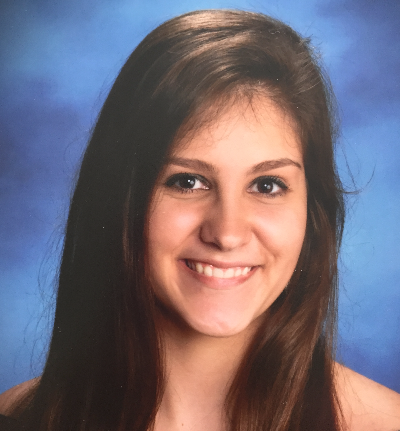The 1-on-1 Program: Approval Process
The Chromebooks will allow students to work more efficiently on schoolwork. Photo by Karly Matthews.
March 25, 2015
The school board granted preliminary approval to a budget plan that involves supplying all high school students with Google Chromebooks for the 2015 to 2016 school year through the 1-on-1 program on Thursday, March 19.
The school conducted a roughly two-month-long testing period with students to try out Apple iPads and Google Chromebooks in relation to school work. Since then, the devices have been redistributed to teachers to further their knowledge of the technology.

Throughout the testing period, students noticed both pros and cons to both devices. For instance, the iPads lack a USB port for flash drives, and the Chromebooks’ touchscreens were sometimes inconvenient.
Principal Kevin Molin worked closely with the test group of students to see which device they preferred, and he believes the program could be a catalyst to make learning at Susquehannock more individualized.
“[The program] is part of a strategic plan to provide every opportunity to have access to instruction materials and increase collaboration in the classroom,” said Molin. “[It aims to] enhance the overall instructional experience.”
Students first tested out the iPads and found that the iPads were greatly inconvenient for school work. The Chromebooks seems more equipped to run programs that the school district utilizes such as Adobe Flash Player. Blackboard, the online program that allows students to access academic material from home, did not function as well on iPads. The Chromebooks, which resemble laptops more closely, simply had more capabilities for students.

Junior Laura Willem was one of the students who tried out the technology, and she preferred, like most students, the Chromebooks to the iPads.
“The Chromebook was more user-friendly,” said Willem. “The fact that it resembled a laptop made it easier to navigate different websites, and it was much easier to type things like papers.”
After both testing periods, the students met with the school board to explain their experiences and findings, and the school board then decided on a device based on the overall student feedback, which pointed straight to the Chromebooks.
Chief Financial & Operations Officer Wayne McCullough has also been involved in program planning and oversaw Chromebook discussions.
“I think, overall, the [school] board has been very supportive of technology in the classroom,” said McCullough.
The school board was then briefed on Tuesday, March 17 before voting at the official school board meeting, taking place two days later on Thursday, March 19.





